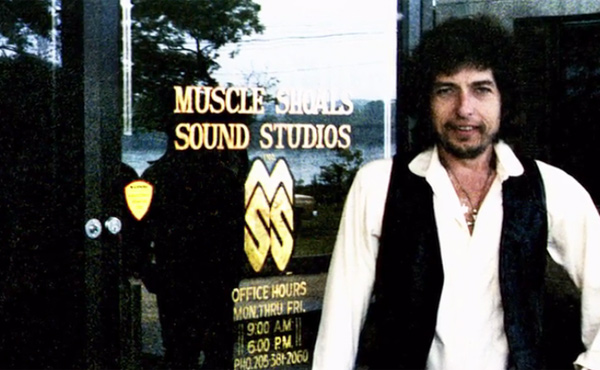The documentary, Muscle Shoals, tells the story of a tiny recording studio named FAME in an Alabama town of a thousand. FAME Studios was built on cinderblock in the middle of a cotton field. It was 1959 when racial tensions still roared and a white man named Rick Hall began recording black and white musicians together. They created what became the “Muscle Shoals Sound.”
The film is directed by Greg “Freddy” Camalier and features interviews with music greats like Mick Jagger, Keith Richards, Percy Sledge, Gregg Allman, Jimmy Cliff, Clarence Carter, Etta James, Alicia Keys, and Bono. Camalier also got ahold of fascinating segments with Jerry Wexler, the famed music producer.
This week Rick Hall sat down with TheBlot Magazine to tell stories.
Read more: U.S. Government Worker Trapped in a Chinese Spy ‘Love Affair’
When did FAME Studios begin to take off?
Rick Hall: It was the early 60s and Jerry Wexler was the biggest record company guru in the world. I’d looked up to him all my life. He was the man I wanted to be. Anyhow, Jerry said if I ever had a hit to call him. So I called to play him our first recording of Percy Sledge singing “When a Man Loves a Woman.” Jerry said he didn’t think it was a hit. I told him I’d bet my life that this was going to be number one. Not number two, not number three, but number one worldwide. My stock went sky high with Wexler after that single went number one worldwide. Jerry called and said, “Can I bring Wilson Pickett down and make some records?”
How were things with Wilson Pickett?
I met Wilson Pickett when I picked him up at the airport. On the way to FAME Studios I looked at him and he looked at me and I could see in his eyes he was thinking, ‘Now what am I doing down here with this cracker in Alabama.’ He looked dangerous. I soon found out Pickett had a temper. On a session, if he didn’t like what was going on he would just stop and say “C’mon outside,” and he’d go whoop the drummer.
So things didn’t work out?
No, the opposite. Wilson and I became soul brothers. Everything was roses with Jerry and I became Jerry’s right hand man. We recorded hit after hit with Wilson, like “Mustang Sally” and “Land of 1000 Dances,” too many to name. Then we recorded Aretha Franklin’s first number one hit, “I Never Loved a Man (The Way I Love You) with “Do Right Man” on the flip side.
How did you find your studio musicians?
When I first started, we didn’t have one musician to call on to do sessions. I had to teach them all. Black and white, it didn’t matter. We were colorblind.
What made you colorblind way back then?
Oh, I don’t know. It was all about Percy Sledge and Wilson Pickett, Aretha Franklin and Etta James, Joe Tex. I worked with anybody who’s anybody and it was all about the music.
Wasn’t it unusual for Blacks and Whites to mix then?
Yes, but we did our music when George Wallace was standing there talking about segregated schools. We were making hit records the night that Dr. Martin Luther King was killed.
What made you see beyond race?
I don’t know. I just did. I grew up poverty stricken and I figured that a lot of the black people were also having hard times. I was as bad as it gets. I didn’t have a mother. I had all kinds of tragedies in my life. [Each told in film]
Did the black musicians approve of you?
When we did the song “Patches,” Clarence [Carter] said to me, “I could never do that song.” I said, “Why in the world not?” He said, “It wouldn’t be right for me to do that because it’s degrading to my people.” I said, “My papa was a great old man, I can see him with a shovel in his hands, education he never had,” I told Clarence, “That’s me and my father.” So that’s when he said, “Alright, we can try it.” Yeah, we tried it and of course it became the first number one record Clarence ever had. Oh yeah, I got along with everybody.
Did you ever give up on a song because it wasn’t working?
No. Once I found a song that I thought was a hit I never gave up on it. I went back and did it again. I called the musicians back, I studied it, and did it again until I got it like I wanted it. I always got it the way I wanted it.
Muscle Shoals opens in theaters September 27, 2013. Don’t miss it. Documentary, biography, history. Rated PG. 111 minutes.






